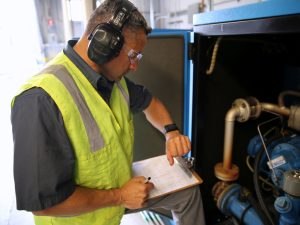Americans impacted by hearing loss hits record numbers
According to the National Institutes of Health NIDCD, approximately 20 percent (48 million) of American adults aged 20 to 69, have some trouble with hearing, and approximately 28.8 million could benefit from the use of hearing aids. Among adults aged 70 and older with hearing loss who could benefit from hearing aids, fewer than one in three (30 percent) has ever used them.
As the baby boomer population ages, more Americans are forced to face hearing health challenges. Growing numbers of younger Americans (including millennials and GenX’ers) are also reporting hearing problems. The NIH NIDCD also states that five in 10 young people listen to music or other audio too loudly and that four in 10 young people are around “dangerously loud noise during events like concerts and sports games.” Occupational noise is another factor impacting hearing in people of all ages who work outdoors, in factories, fulfillment centers, etc.
Technology has progressed extensively and hearing aids are no longer the bulky contraptions of years past.” Hearing aid companies have stepped up to the plate to make “very cool” hearing aids for kids and young adults. “You can opt to buy hearing aids that are virtually undetectable or you can buy them in a wide range of cool colors and styles. Many work with smartphones.”
Audiologists are the experts in hearing health, Hearing aids are not always the only or recommended solution, which is why it’s important to see an audiologist to further determine the appropriate treatment. Sometimes the cause is temporary or a symptom of another illness or disease. An audiologist will run various tests to determine the cause and will be able to recommend treatment.
Some signs of hearing loss may include:
- Suddenly having to turn up the volume of the television, radio, or stereo and having other family members complain that the volume is too loud.
- Difficulty understanding people speaking to you and asking people to repeat themselves.
- Difficulty with phone conversations and understanding the other person.
- Sudden inability to hear the doorbell, the dog barking, and other household sounds.
- People telling you that you speak too loudly.
- Ringing in the ears.
In furthering working to help the public recognize hearing loss, the American Academy of Audiology helped launch a hearing screening app last year, hearScreen USA. The app provides an easy hearing test through the use of a smartphone. For those who demonstrate hearing loss, the app will recommend an audiologist. Based on technology developed by the University of Pretoria, South Africa, the app provides accurate detection of hearing loss in under three minutes.
To find an audiologist, go to www.audiology.org/FindAnAudiologist.
UniFirst First Aid + Safety now offers Onsite Mobile Hearing Testing for your company – Call 800.869.6970 to learn more.
Click Here to learn more about Hearing Protection

